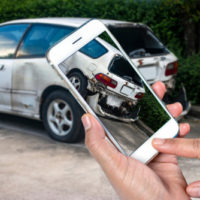PIP Repeal Dies in Legislature

Although a measure ending the Personal Insurance Protection requirement appeared to have some support in the State Senate, the PIP repeal law never made it to the governor’s desk.
In the spring of 2019, PIP repeal cleared several procedural hurdles in the Senate and appeared close to a floor vote. But then, Senate Banking & Insurance Committee Chairperson Anitere Flores (R-Miami) demanded assurances that the measure would actually reduce consumer insurance rates. That’s a commonly-held belief, but one which has little statistical support. Absent such proof, Sen. Flores refused to back the measure further, and it died in committee.
Despite the failed PIP repeal, conservatives enjoyed one of their most successful sessions in many years. Lawmakers expanded school choice vouchers, banned sanctuary cities, and limited some medical malpractice damages.
The PIP/Serious Injury Requirement
In the 1970s, a number of jurisdictions experimented with PIP requirements as a way to reduce car crash legal claims. But today, only Florida and a few other states still have no-fault insurance laws.
Essentially, if the accident only causes property damage, victims may file claims with their own insurance companies for economic losses. Such losses include things like:
- Medical bills,
- Lost wages, and
- Property damage (e. vehicle repair or replacement).
Typically, only low-speed “fender-benders,” such as collisions in shopping mall parking lots or at residential intersections, qualify under the no-fault law.
As a general rule, if your vehicle was not drivable after the accident, you probably sustained a serious injury. The law defines a serious injury as any permanent wound. Usually, car crash injuries never completely heal. For example, a broken shoulder may heal, but the victim may never regain 100 percent range of motion in that shoulder.
If you sustain a serious injury, you may be entitled to additional damages under Florida law. These additional damages include money for noneconomic losses, such as:
- Pain and suffering,
- Emotional distress, and
- Loss of enjoyment in life.
It is rather difficult for a Port St. Lucie personal injury attorney to calculate noneconomic damages. To determine a settlement value, most attorneys multiply the economic damages by two, three, or four. Some factors in the multiplier include the facts of the case, any legal defenses the insurance company has, and the probable makeup of the jury.
The settlement value is the number an attorney uses during pretrial settlement negotiations. The vast majority of civil claims settle out of court in this way.
What to Expect in a Florida Car Crash Claim
PIP repeal may have substantially changed the lawsuit process, but as it stands, the procedure will probably remain much the same.
Many car crash claims settle before the victim/plaintiff even files court papers. Once medical treatment is at least substantially complete, most attorneys send demand letters to insurance companies. If there is no substantial dispute as to liability, many claims settle at that point.
However, there is almost always at least some question as to liability. For example, many collisions involve the contributory negligence defense. This legal doctrine shifts part of the blame for the accident from the tortfeasor (negligent driver) onto the victim.
If there are issues such as these, the car crash claim normally goes to mediation. Professional mediators usually resolve about 75 percent of the cases they handle. So, even if the litigants are far apart on the legal issues and settlement amount, mediation usually works.
Contact an Aggressive Lawyer
Even though the no-fault law still stands, car crash victims are still entitled to substantial compensation. For a free consultation with an experienced Port St. Lucie car accident attorney, contact Eighmie Law Firm, P.A. We routinely handle matters throughout the Treasure Coast area.
Resource:
floridapolitics.com/archives/295674-winners-and-losers-of-the-2019-legislative-session


